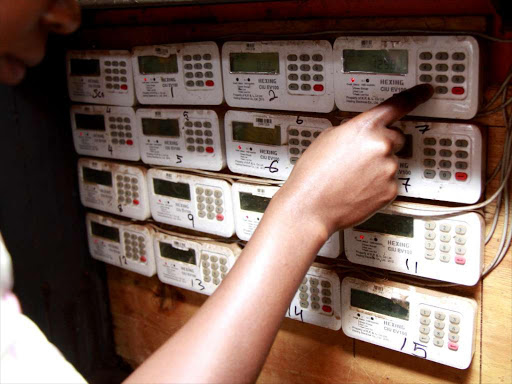Producers under fire from senators over power costs
By Rawlings, October 31, 2022Senators have launched investigations into the high cost of electricity supplied by Independent Power Producers (IPPs) which is 30 times more than the cost of electricity supplied by the Kenya Electricity Generating Company (KenGen).
The lawmakers said the average cost of electricity per unit is Sh25, an amount they explain can only allow a consumer to get 40 units per Sh1,000 or four units for Sh100.
Part of the investigation will be to find out the percentage of access to electricity in each of the 47 counties.
In a statement in Senate last week, Energy Committee chair Wahome Wamatinga (Nyeri) said the cost of energy has a huge impact on the economy.
He said the cost of energy had increased significantly affecting the cost of living, manufacturing, business and food production.
“If we want to industrialise and attract international manufacturing firms, then the cost of power has to be lowered. If we follow the migratory patterns of international manufacturing firms, you will see that as the cost of production increased in North America and Europe, the companies moved to China, India and Africa,” said Wamatinga.
He added: “For us to spur our manufacturing and cottage industries as envisaged in the establishment of the Special Economic Zones in Naivasha, Dongo Kundu and other parts of the country, we need to ensure that the cost of energy is lowered.”
Gigawatt hours
Currently, the total installed capacity with the inclusion of off-grid power is 2,949 megawatts, with geothermal accounting for 863.1 megawatts; hydro 838 megawatts and wind 435 megawatts.
According to the audited accounts ending Financial Year June 2021 KenGen supplied a total of 8,443 gigawatt hours, which makes 70 per cent and was paid Sh44.8 billion.
Independent Power Producers (IPPs) supplied 3,000-gigawatt hours, which translates to about 30 per cent of the total power, and were paid more than Sh56 billion.
Wamatinga said that if KenGen had supplied 100 per cent of the power consumed, the amount paid would have been Sh64 billion and that there would have been a net savings of Sh37.1 billion to Kenya Power.
According to the Nyeri legislator, KenGen charges only Sh5.41 per unit while IPPs charge between Sh9.89 to Sh173.08 per unit.
Ledama Olekina (Narok) said that one of the biggest problems Kenya has experienced is that Kenya Power borrowed money in US dollars at very high-interest rates.
Middle-income
Danson Mungatana (Tana River) said public officials who signed exorbitant contracts with IPPs should have protected the interest of Kenyans.
Moses Kajwang’ (Homa Bay) while contributing to the statement said that Energy, transport and infrastructure are important conditions for sustainable growth.
“Kenya generates about 2,000 megawatts and I do not think that will take us to our desired position of being a truly middle-income economy. The Committee on Energy can also look at the regulatory framework on the people who wish to put electricity into the national grid,” said Kajwang’.
Eddy Oketch (Migori) said that energy and food are some of the issues directly related to energy policy.
Karungo Wa Thang’wa (Kiambu) said Senators should come up with legislation that can help the Executive lower the cost of energy.
More Articles

